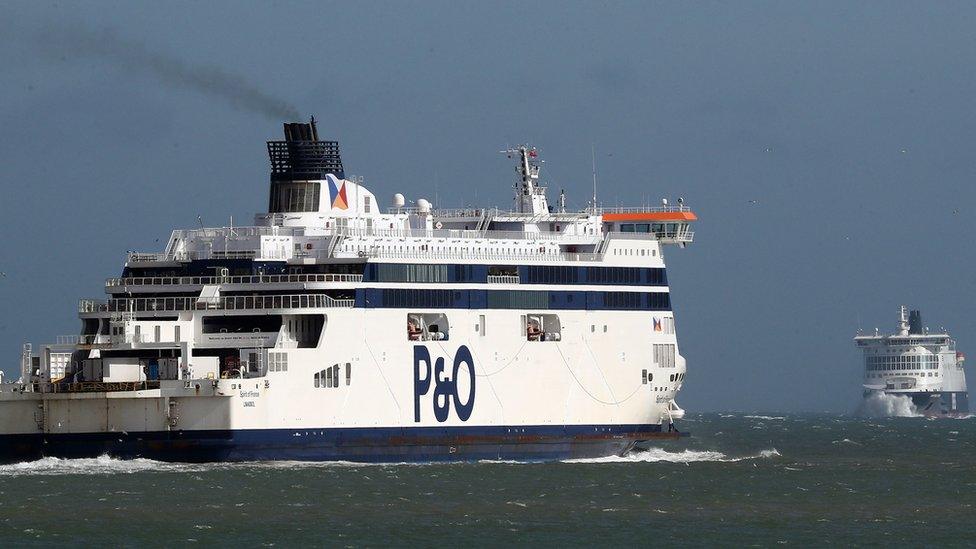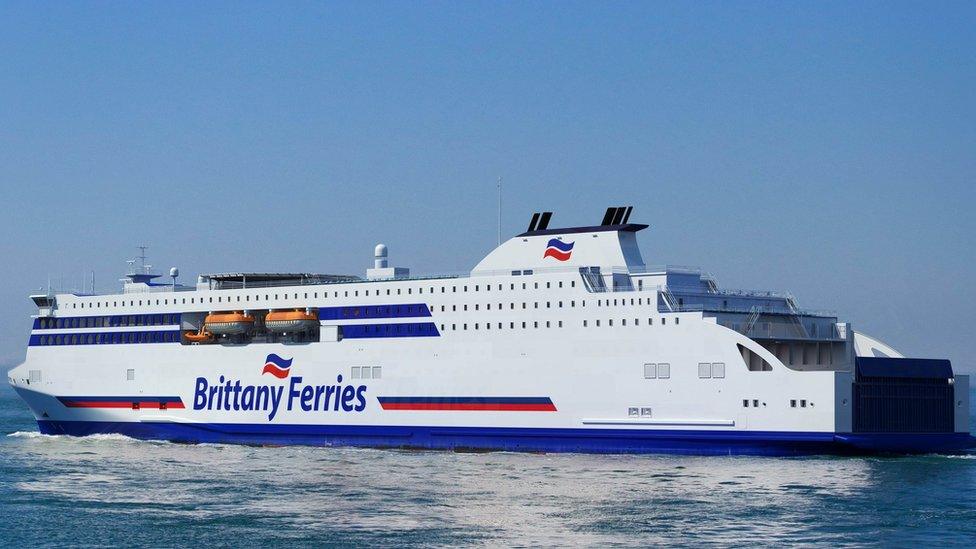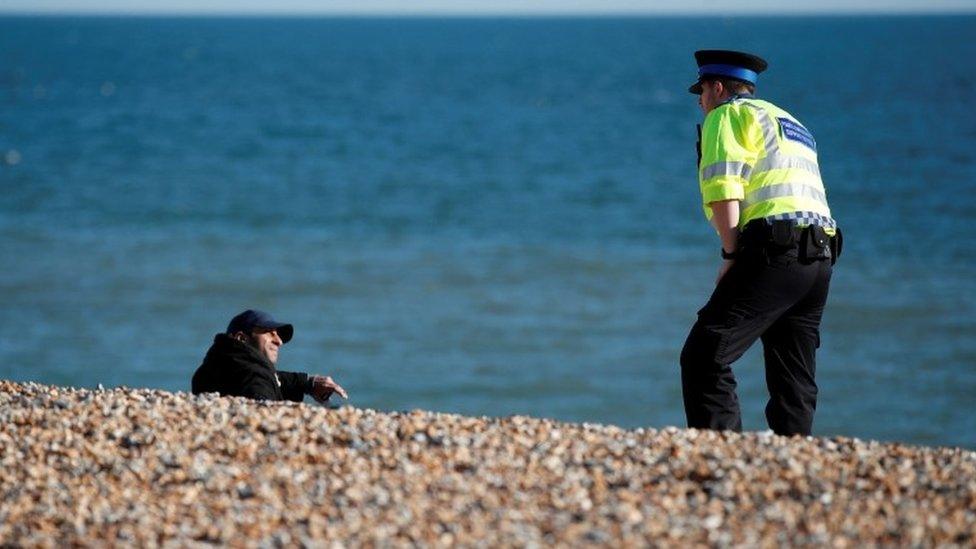Coronavirus: Ferries need financial help to survive pandemic, says trade association
- Published

The trade association that represents ferry companies transporting goods in and out of the UK has called on the government to provide financial support quickly to keep services running.
The UK Chamber of Shipping said a steep drop in passenger numbers due to the coronavirus pandemic meant it was fast becoming cheaper to stop using ships.
Services are just days away from being severely reduced, the group said.
The Department for Transport said it will continue to engage with companies.
The majority of the UK's trade in goods is transported by sea, and up to 50% of the nation's food is imported.
The UK Chamber of Shipping warned if businesses severely cut back services, then supplies of food, medical equipment and other imported goods would be put at risk.
The group added it was cheaper to cease using ships, rather than keep them running at a loss.
However, ferry companies such as P&O, Brittany Ferries and Stena need income from passengers too to stay profitable. A number have already reduced services as that income has dropped off.

A SIMPLE GUIDE: How do I protect myself?
AVOIDING CONTACT: The rules on self-isolation and exercise
LOOK-UP TOOL: Check cases in your area
MAPS AND CHARTS: Visual guide to the outbreak
VIDEO: The 20-second hand wash
PUBLIC TRANSPORT: Is it safe to travel?

P&O Ferries, which carries around 15% of the UK's imported goods, including food and medicines, announced it was suspending its passenger business. It is furloughing more than 1,000 staff, using the government's job retention scheme.
P&O Ferries told the BBC that the company needs £257m to keep going. The BBC understands the company wants £150m of that to come from the government.
Most passengers have also vanished from buses and trains, and the government has intervened to ensure they keep running. The ferry industry argues it too needs bespoke financial support to stay viable.
Bob Sanguinetti, chief executive of the UK Chamber of Shipping, told the BBC: "We have a number of companies explaining how much money they're losing - we're talking millions every day.
"What we're asking for is not a wholesale bailout, it's for the government to share and underwrite some of the risk and the costs to allow the ferry companies to continue providing that vital, lifeline service to the country."
He said it was unclear how the furlough scheme could be applied to seafarers.
It is not yet clear exactly what form any support could take, and different companies will have different needs. But it's thought the industry as a whole could ask for hundreds of millions of pounds to stay afloat, effectively asking for supply routes to be subsidised.
Another sector requesting a support package is temperature-controlled storage and distribution of fresh and chilled food and drink.
The Cold Chain Federation's chief executive Shane Brennan said businesses involved in warehousing and transporting products had been rocked by a bottleneck in storage - as customers, such as restaurants, no longer need goods to be delivered. They usually make money from goods being moved around.
The Department for Transport says it recognises the challenges currently facing transport businesses.
But having already announced emergency rescue packages for the economy worth hundreds of billions of pounds, the headache for the Treasury will be deciding how many stricken industries to individually assist, and which are in most urgent need.
- Published15 March 2020

- Published3 April 2020

- Published4 April 2020
